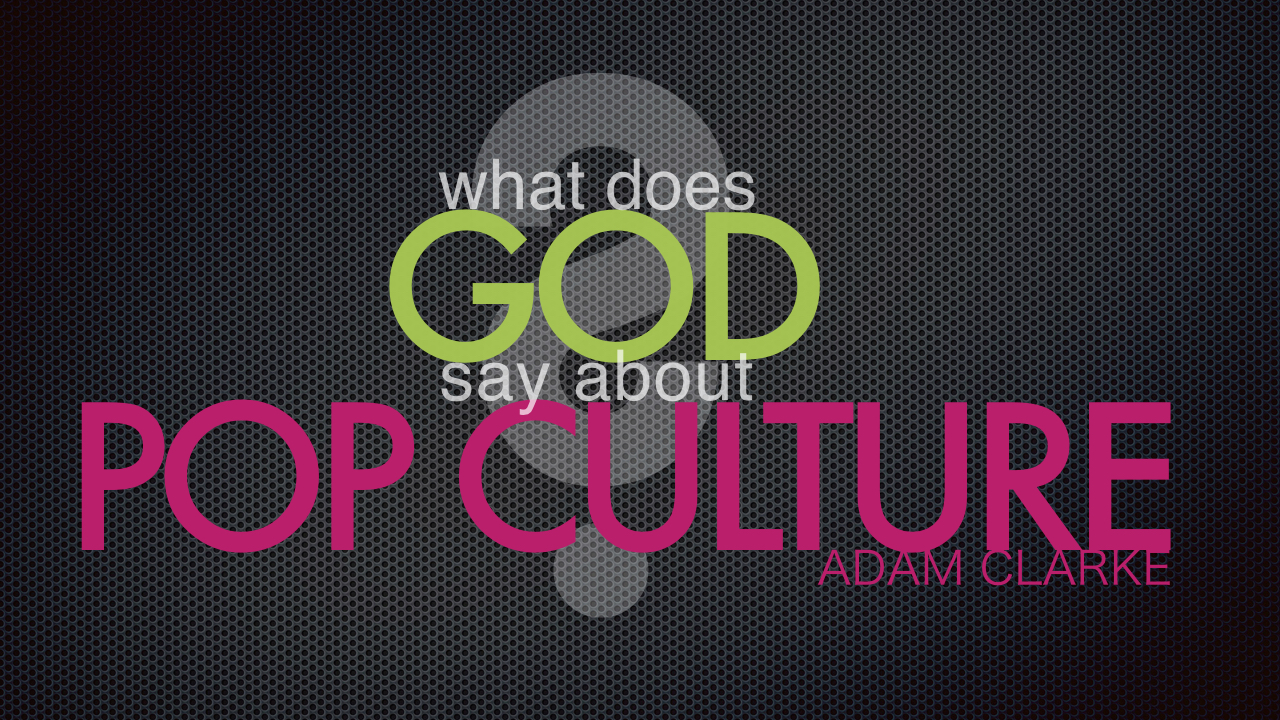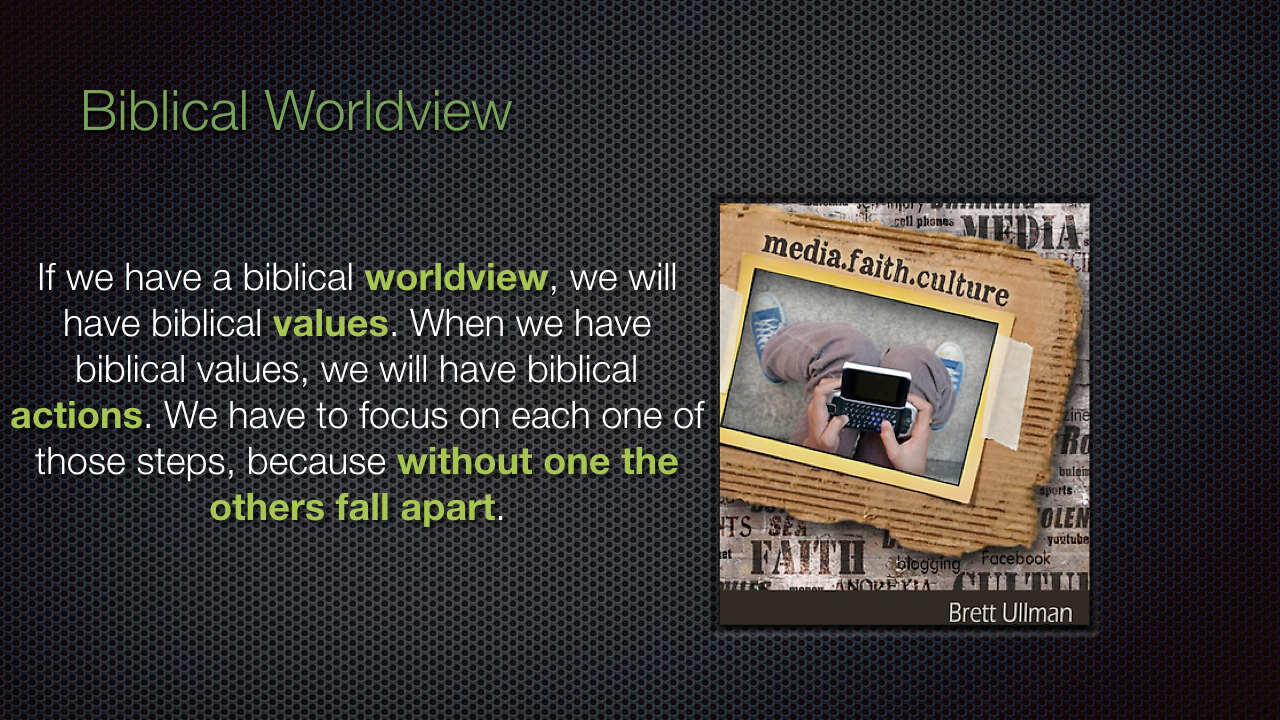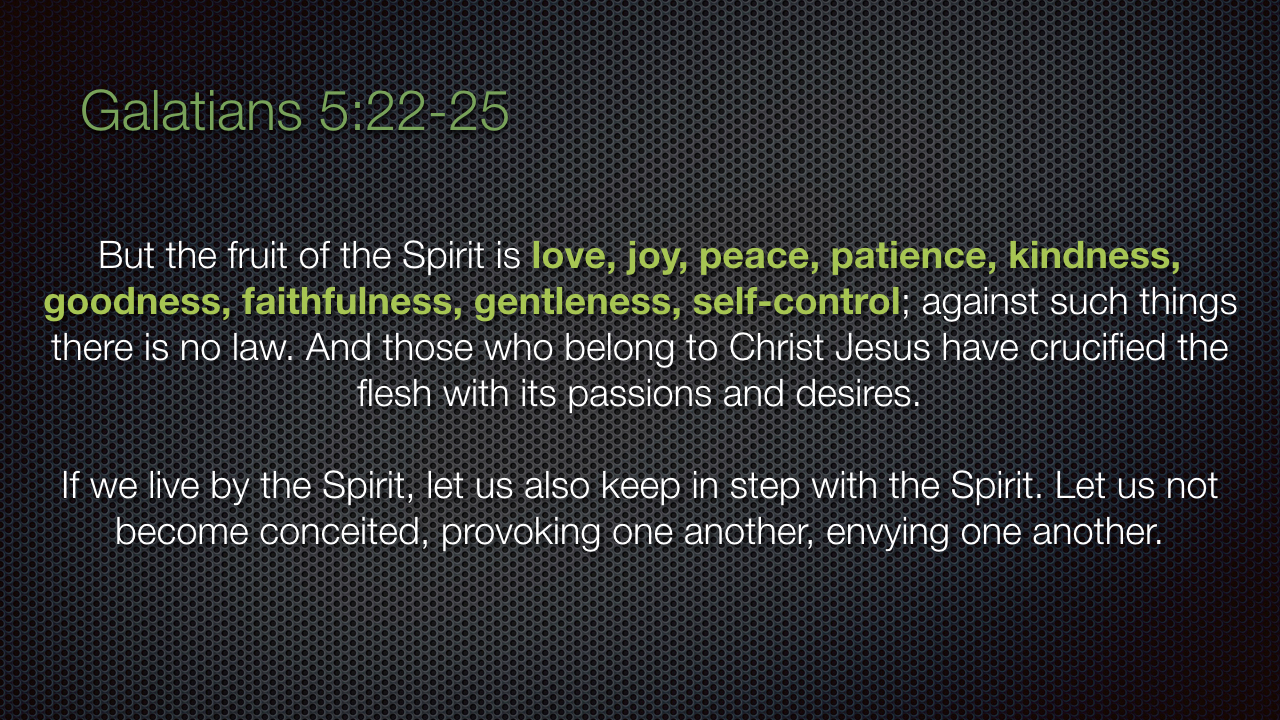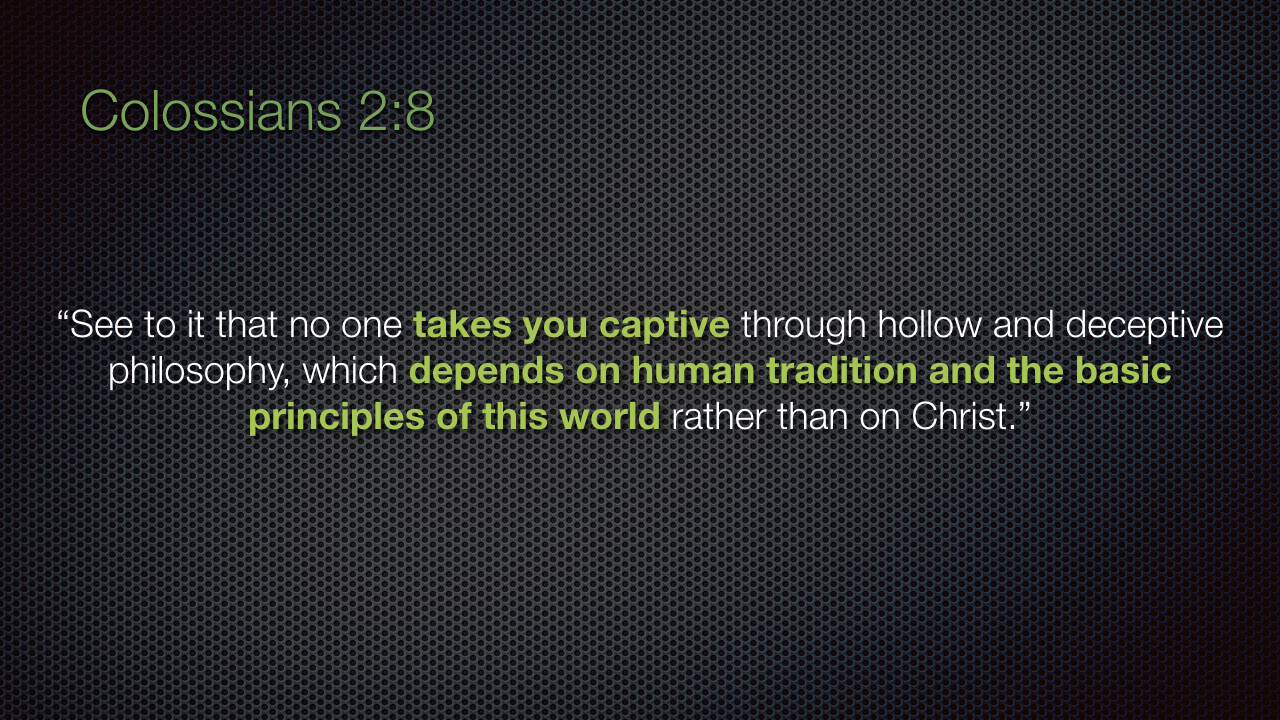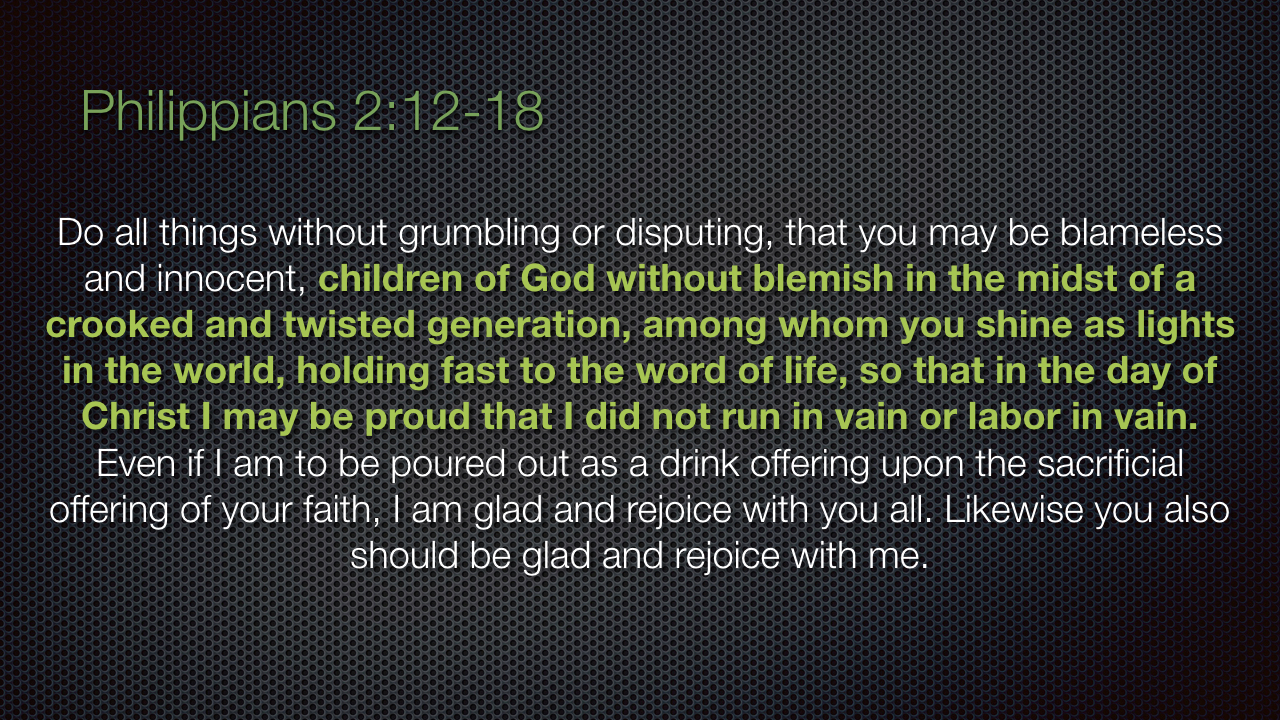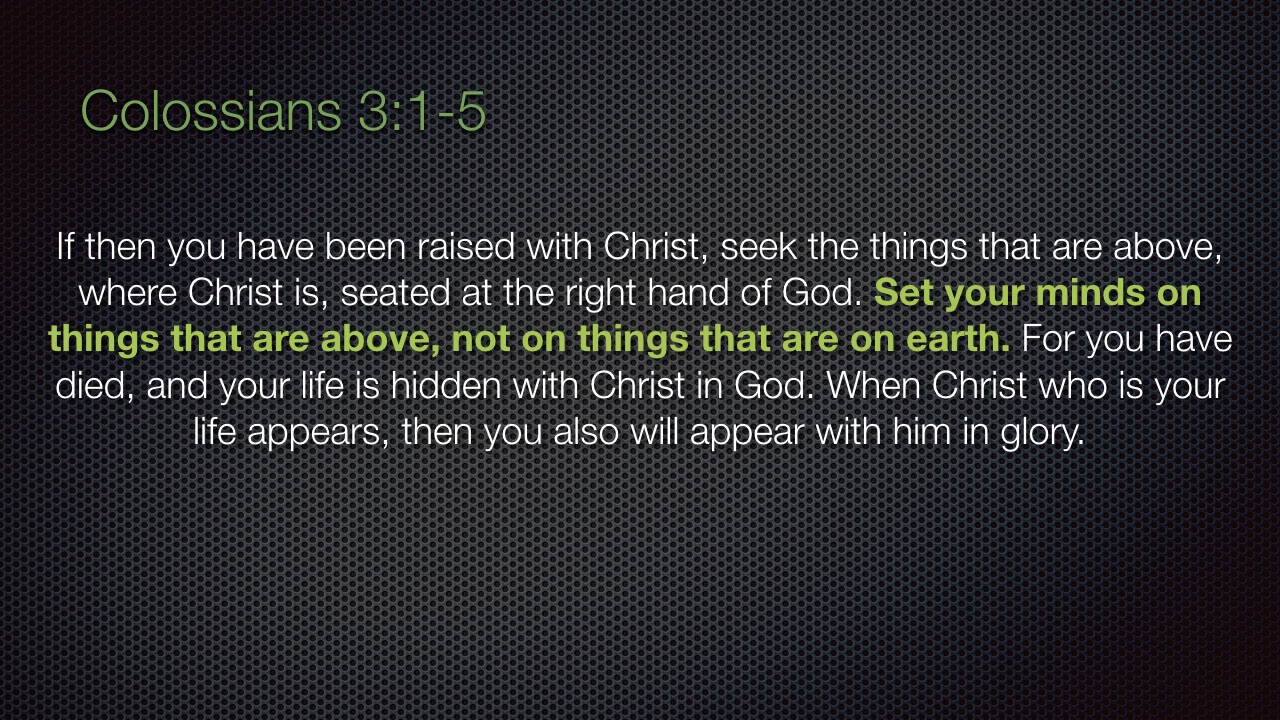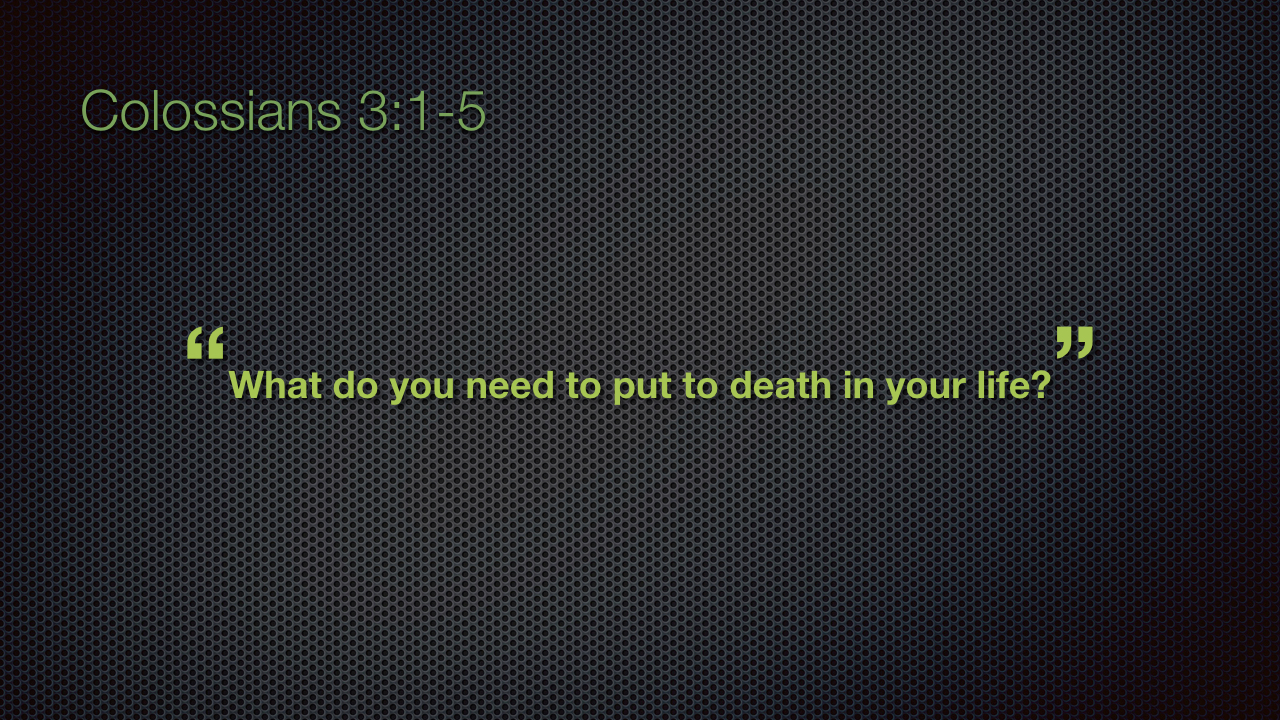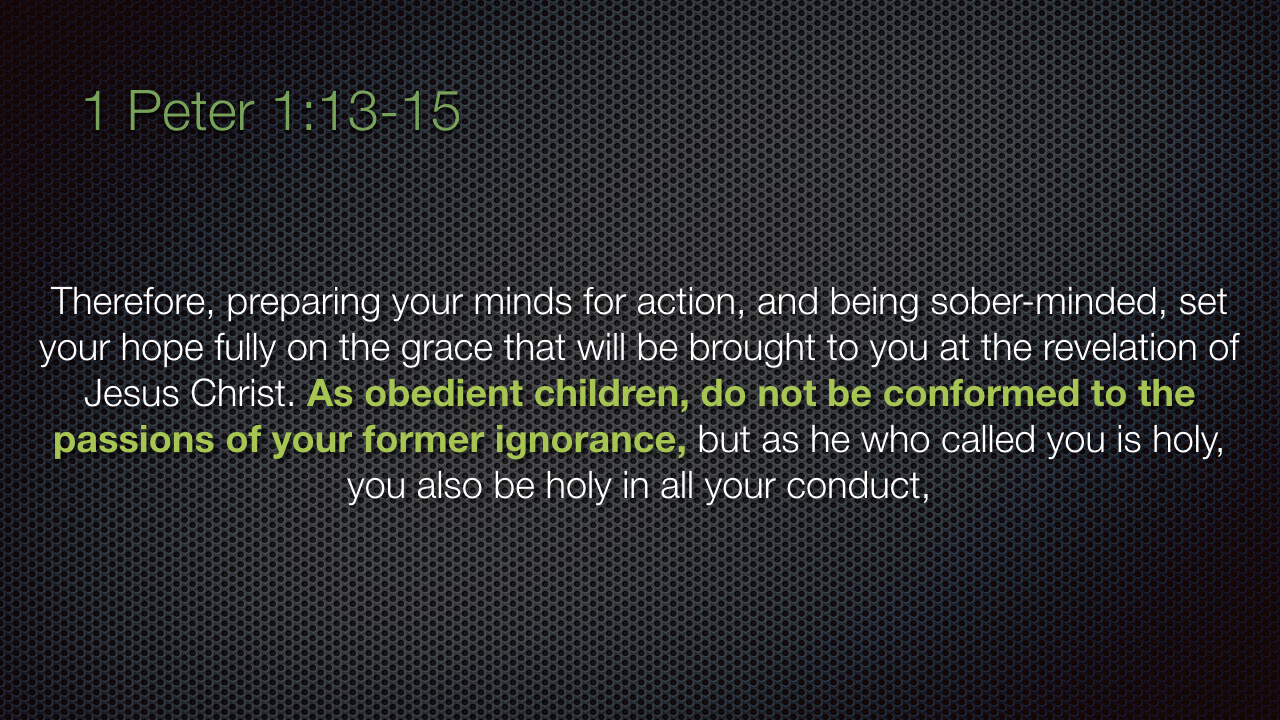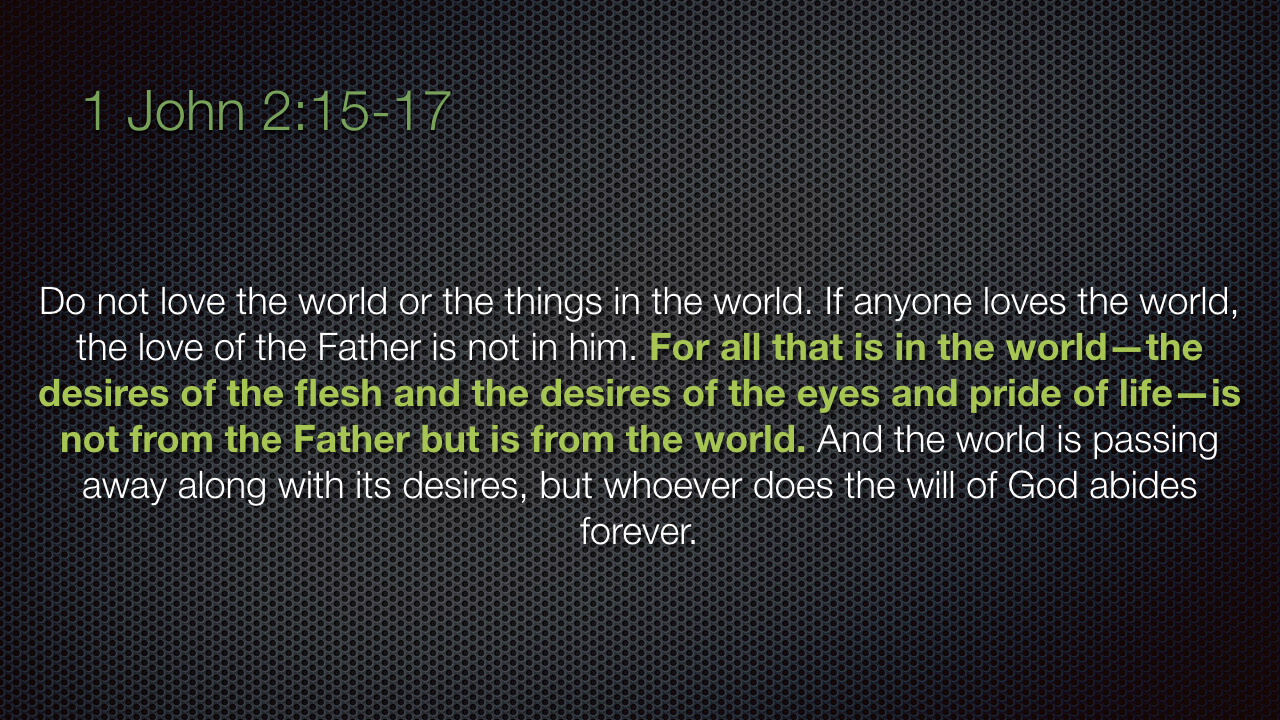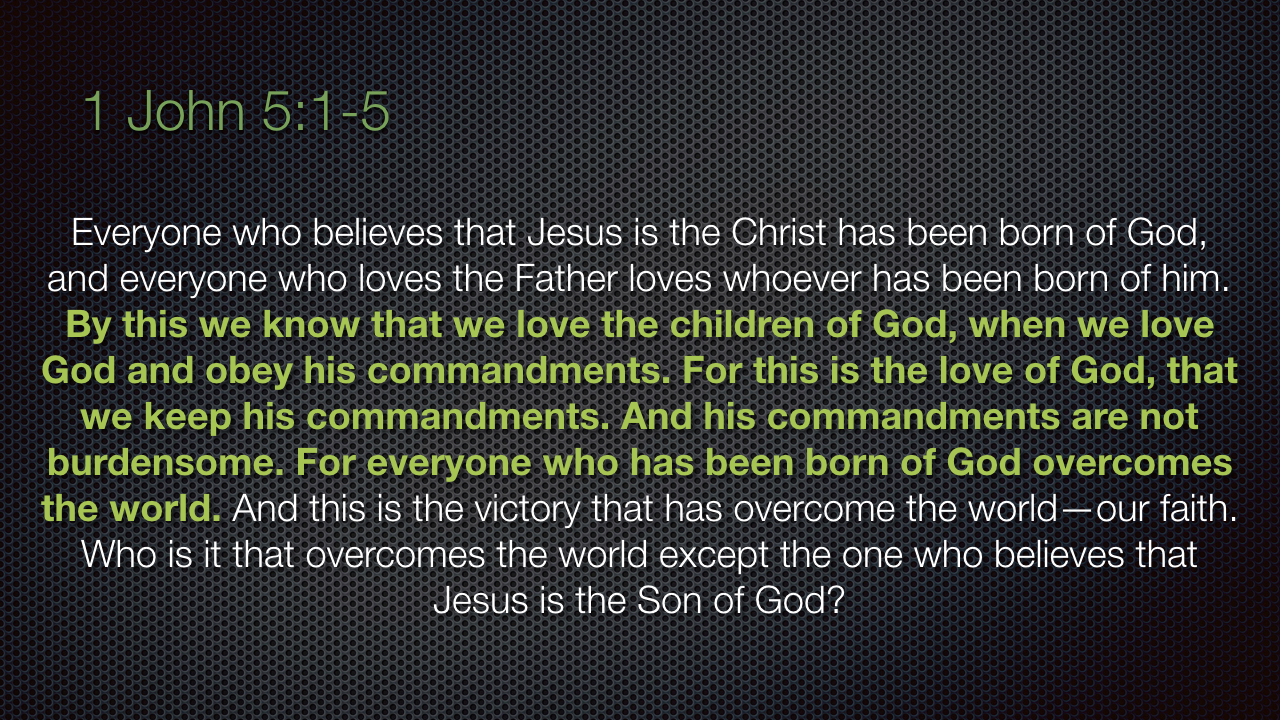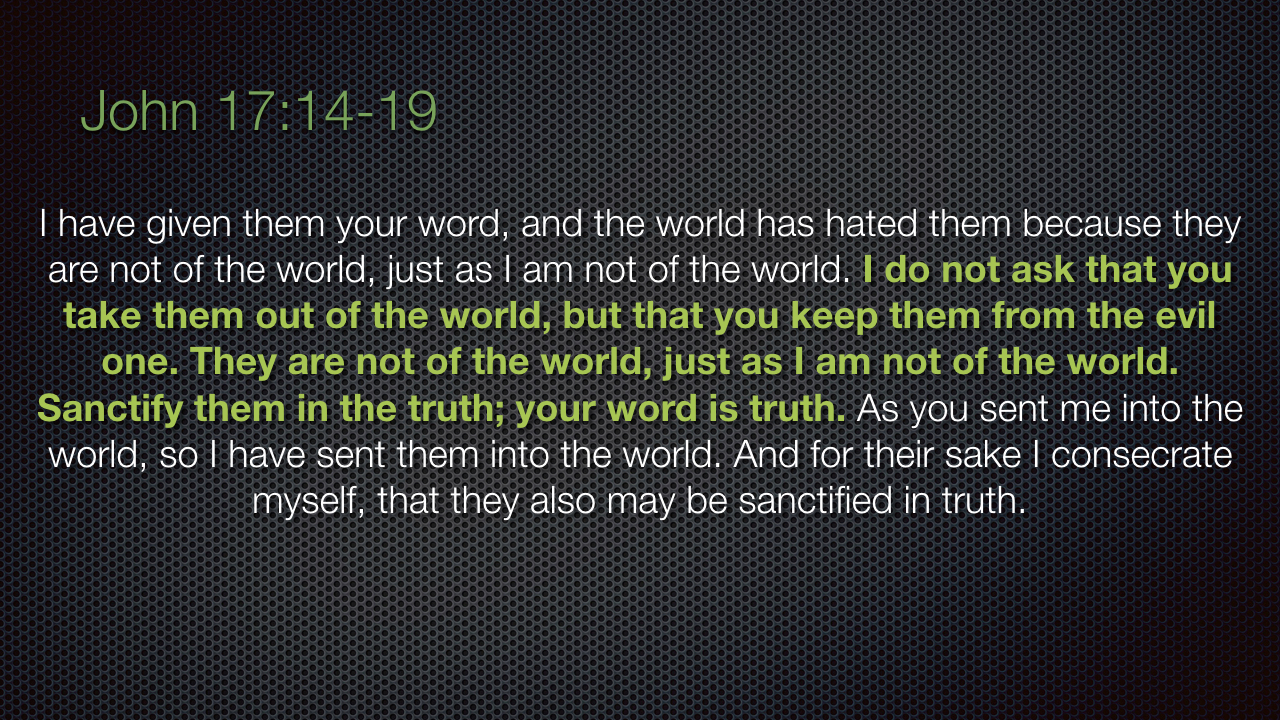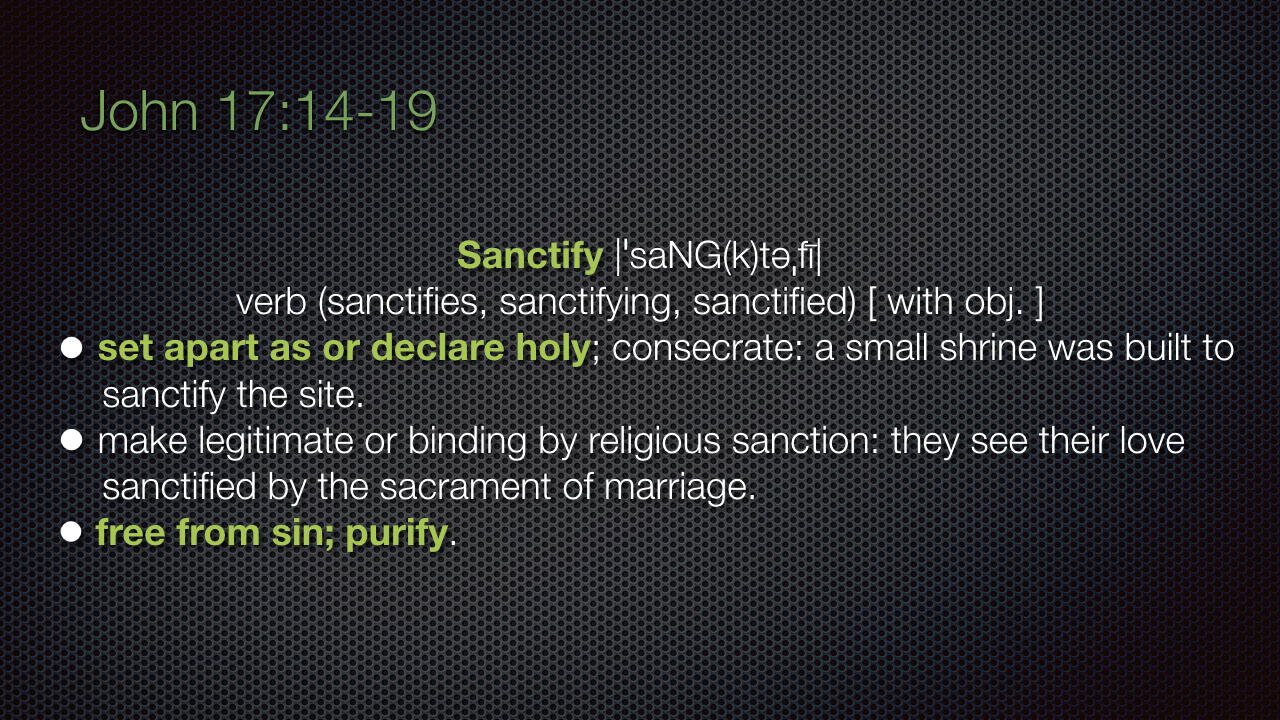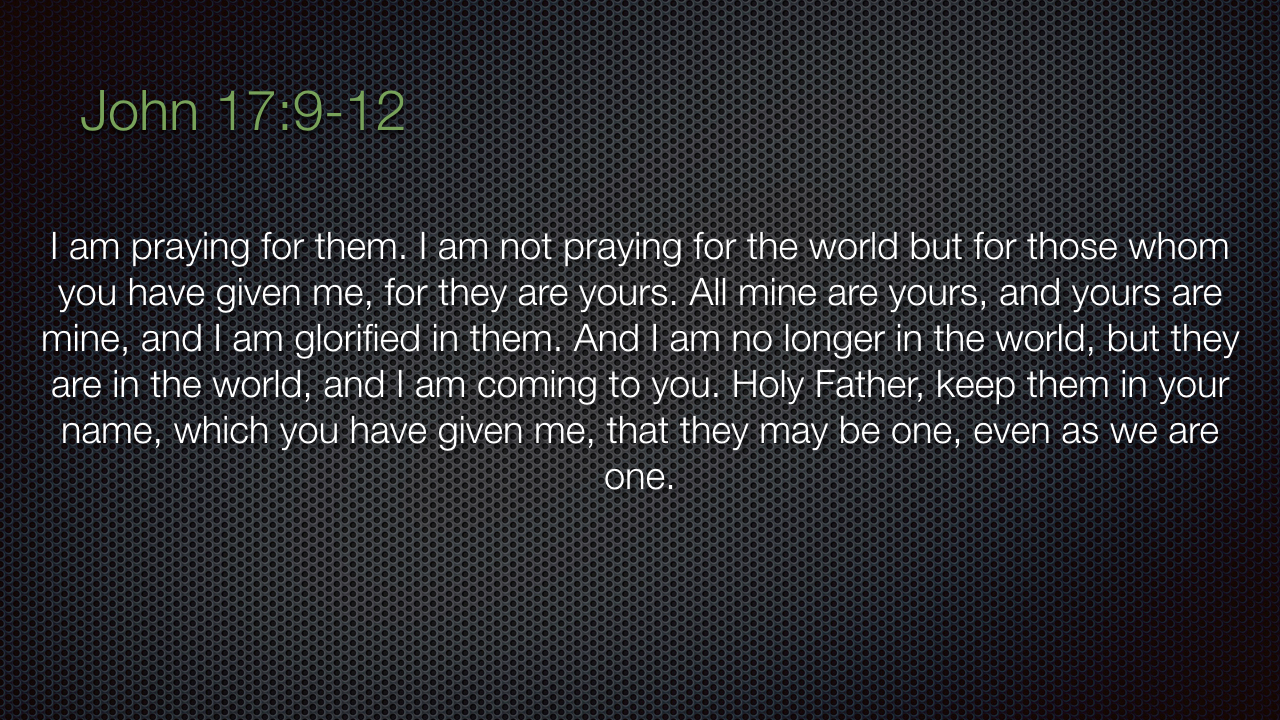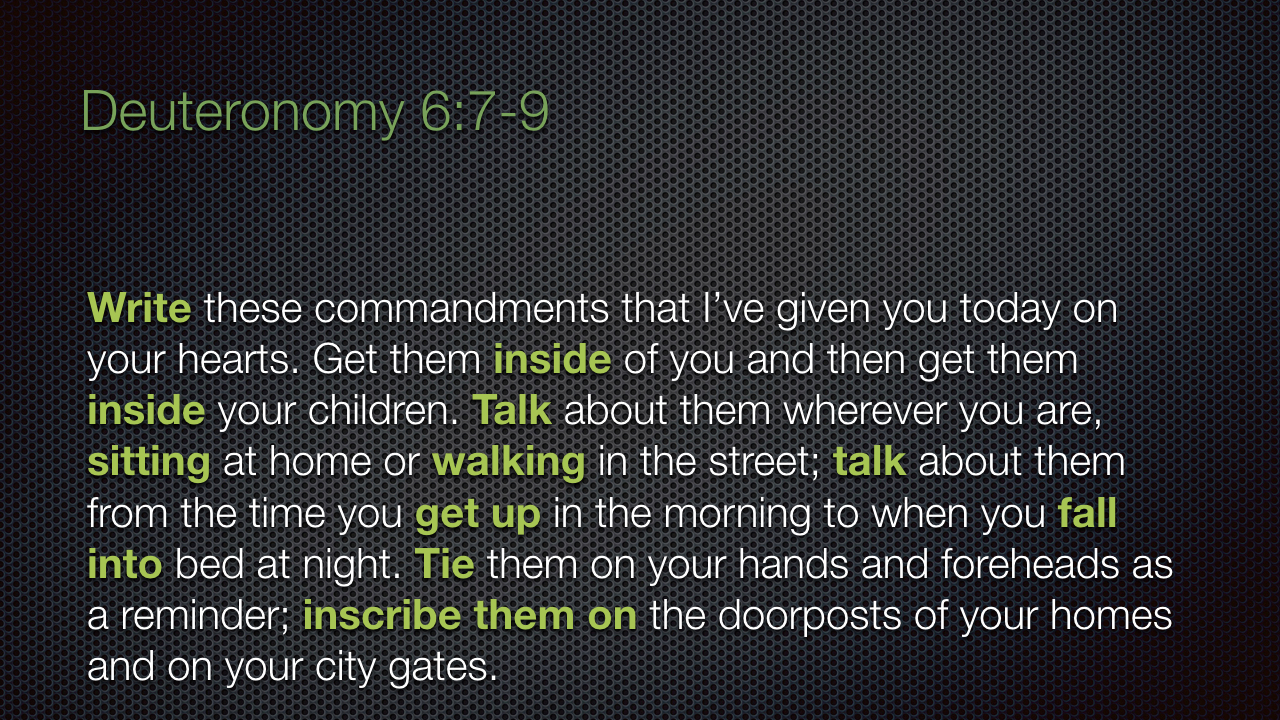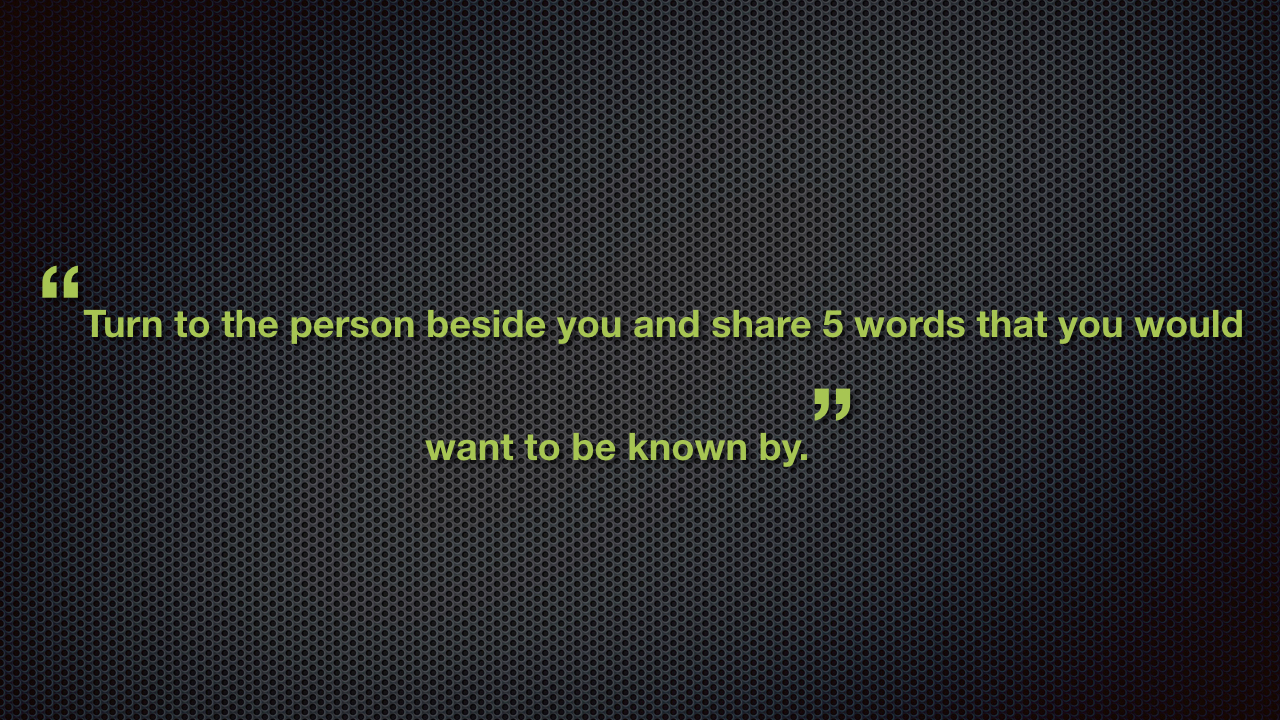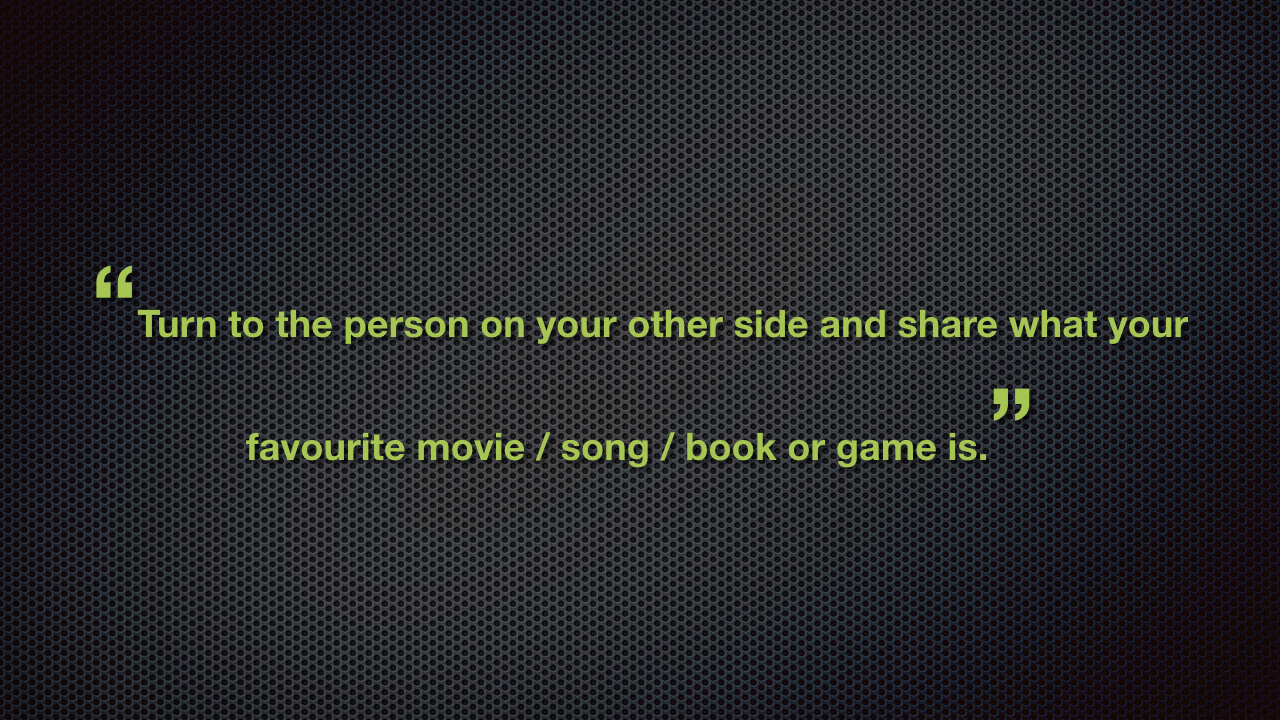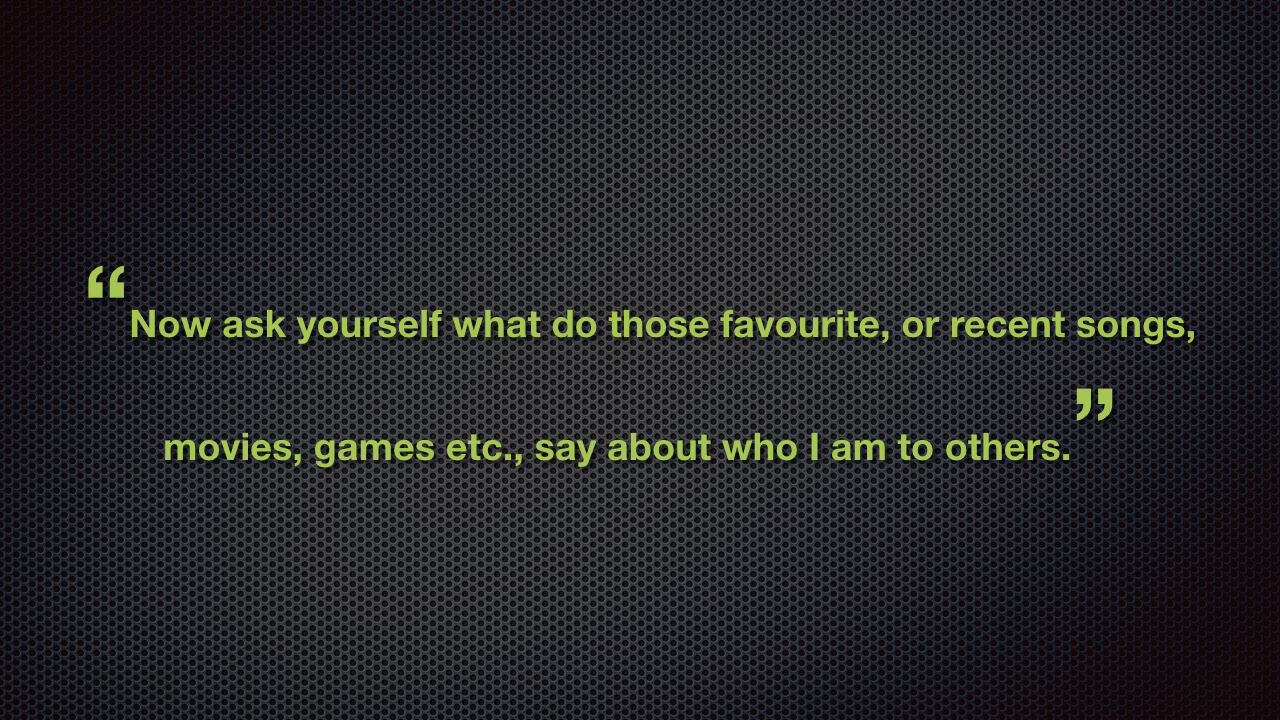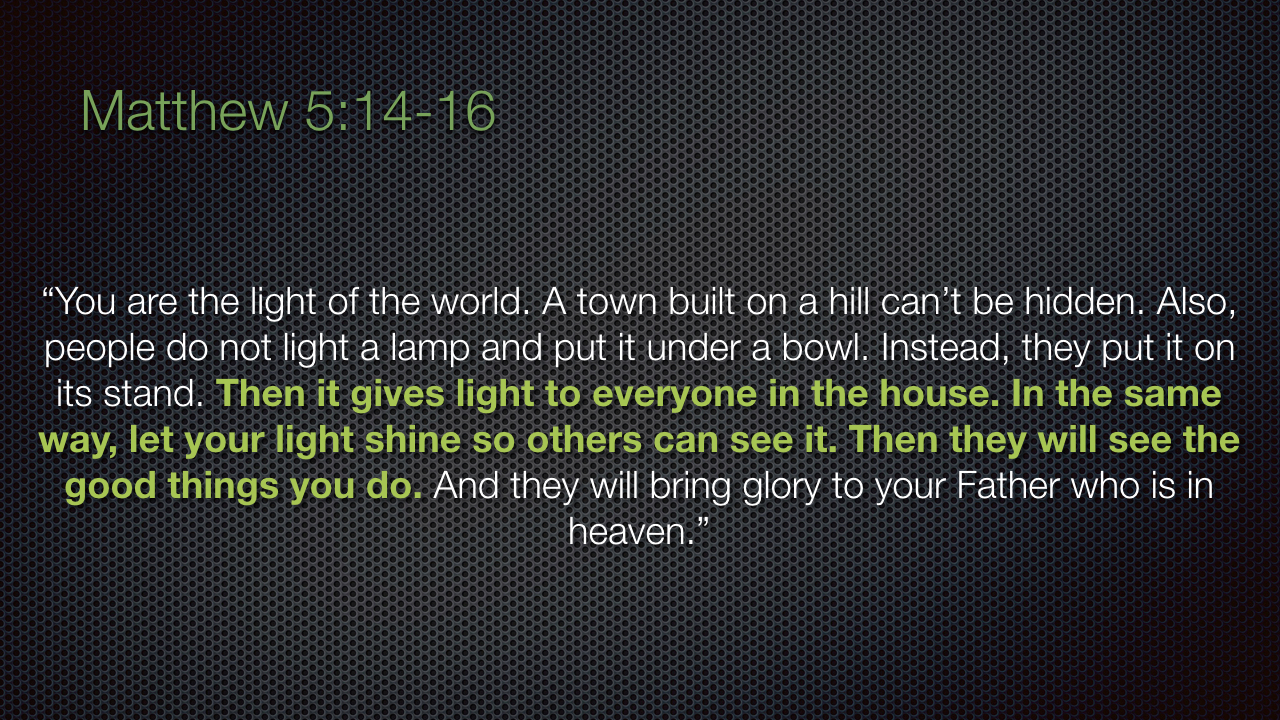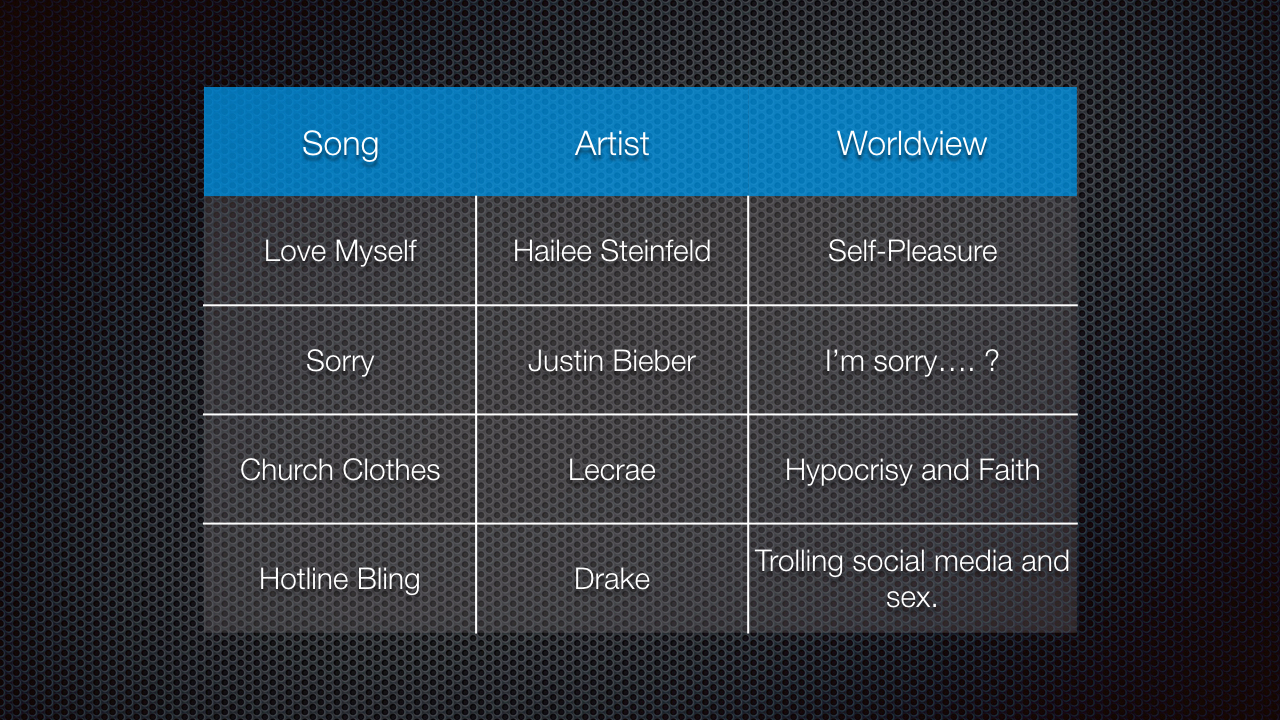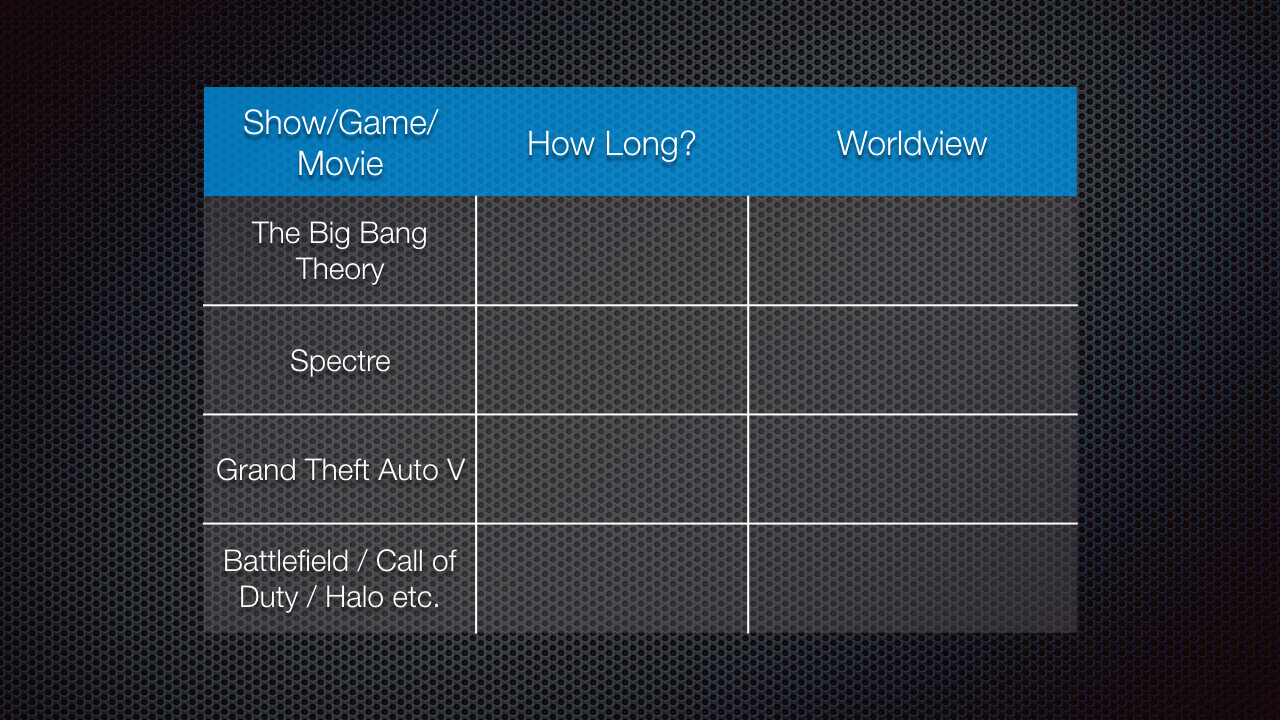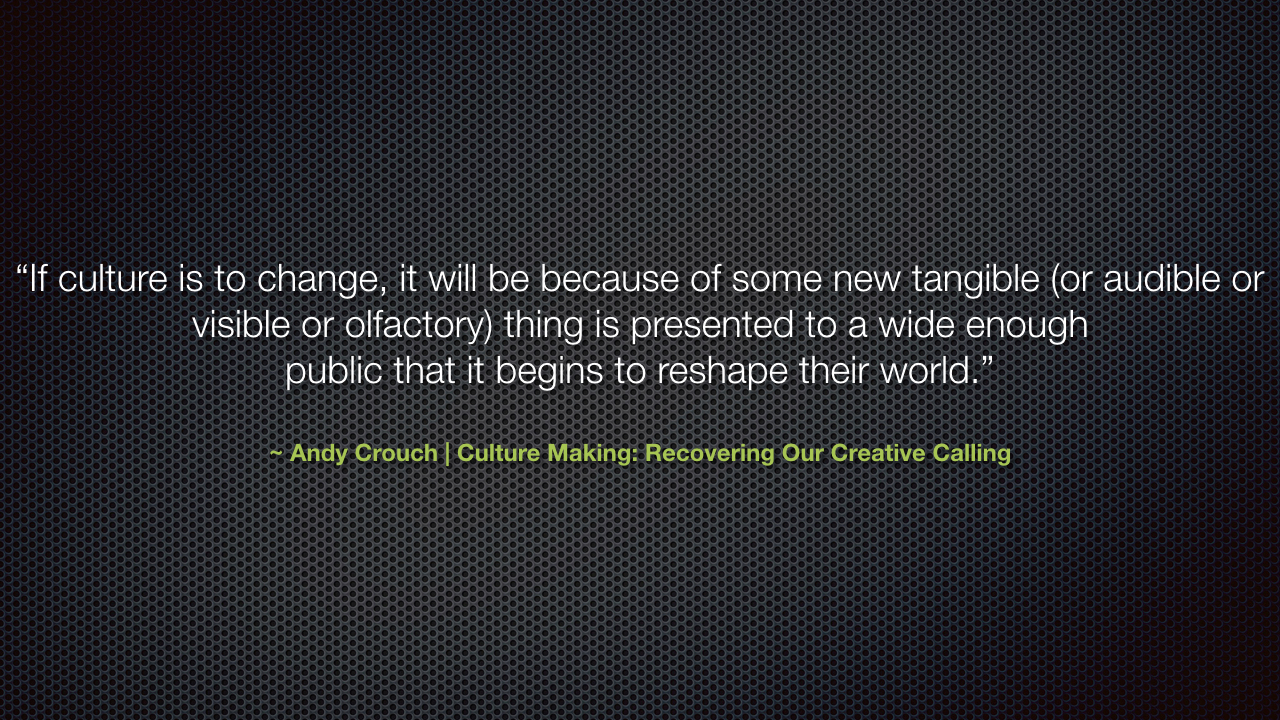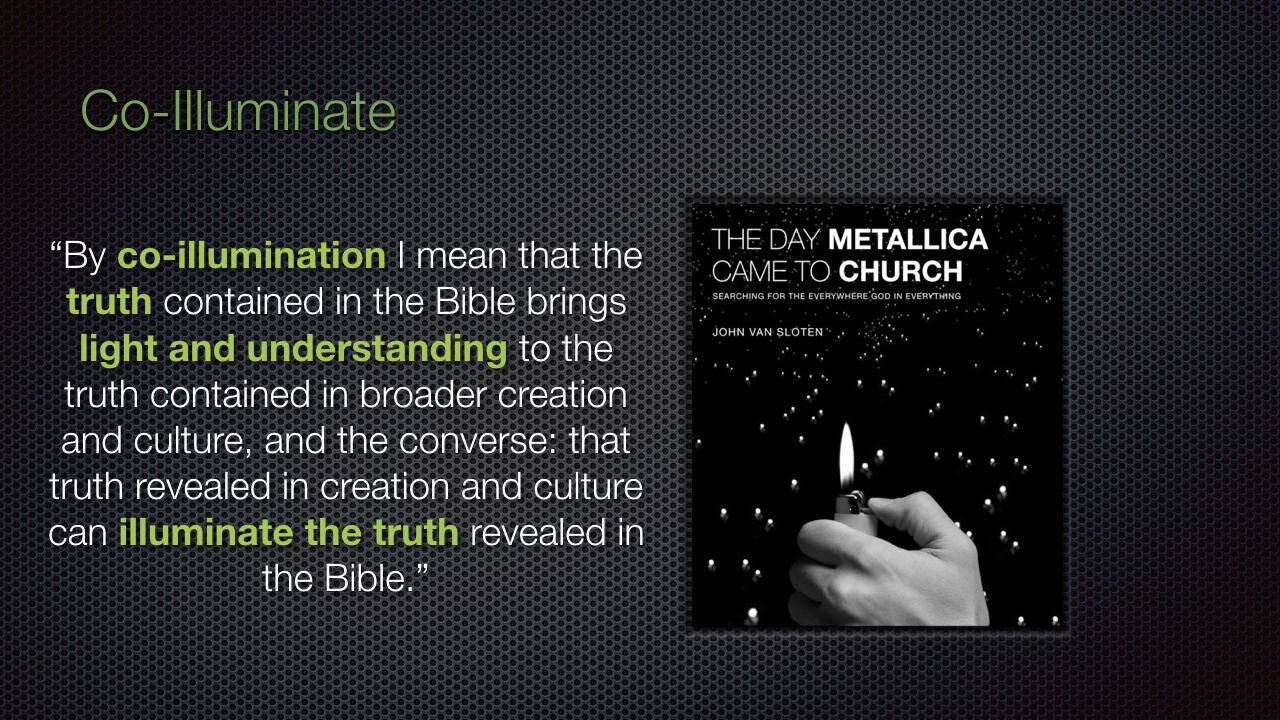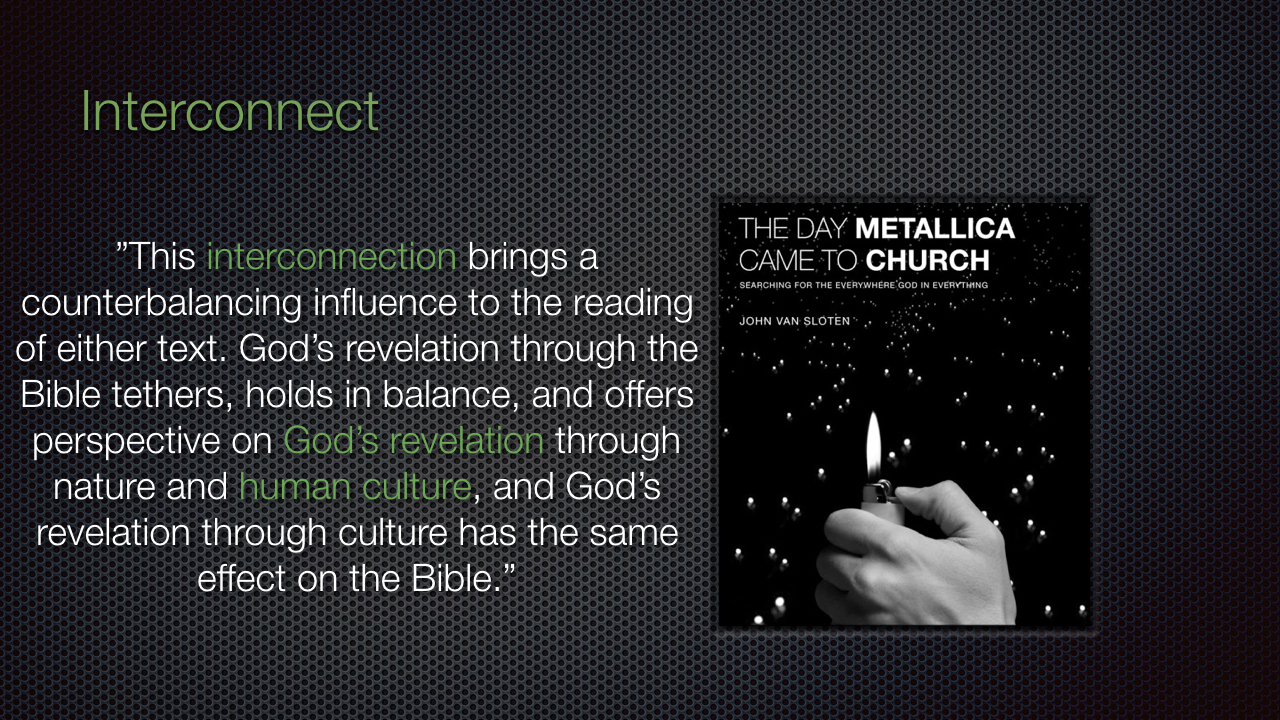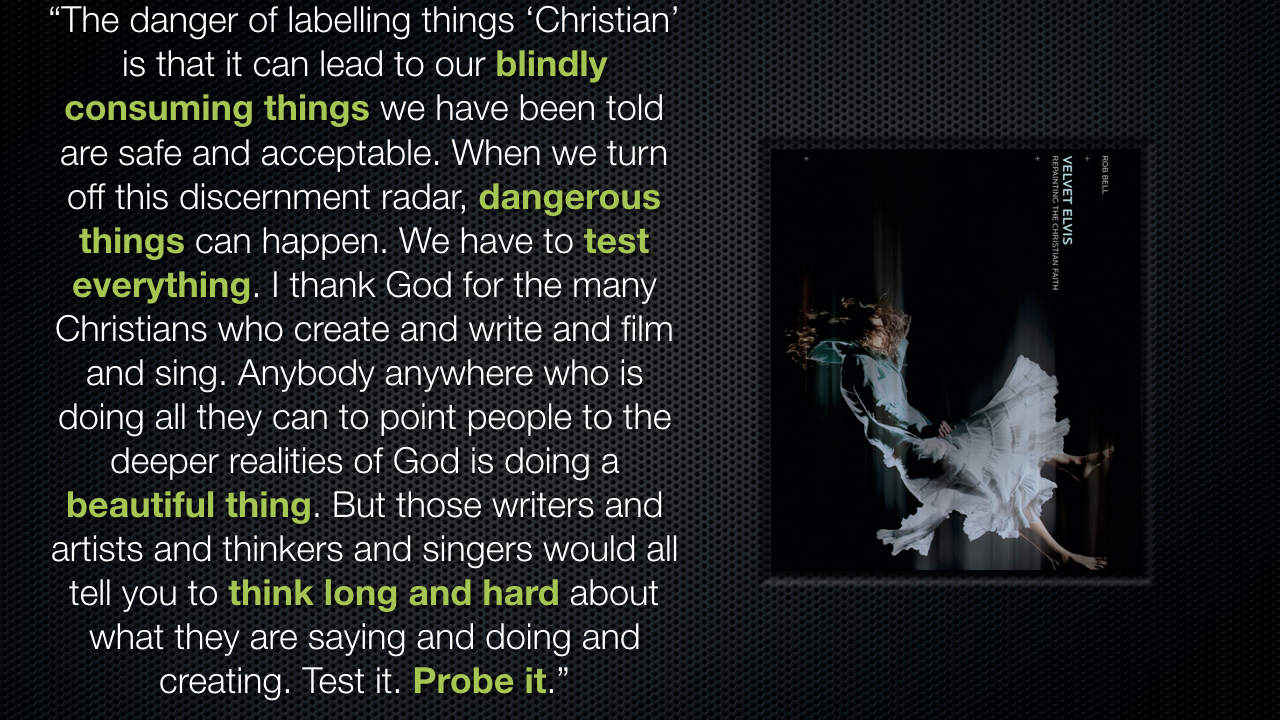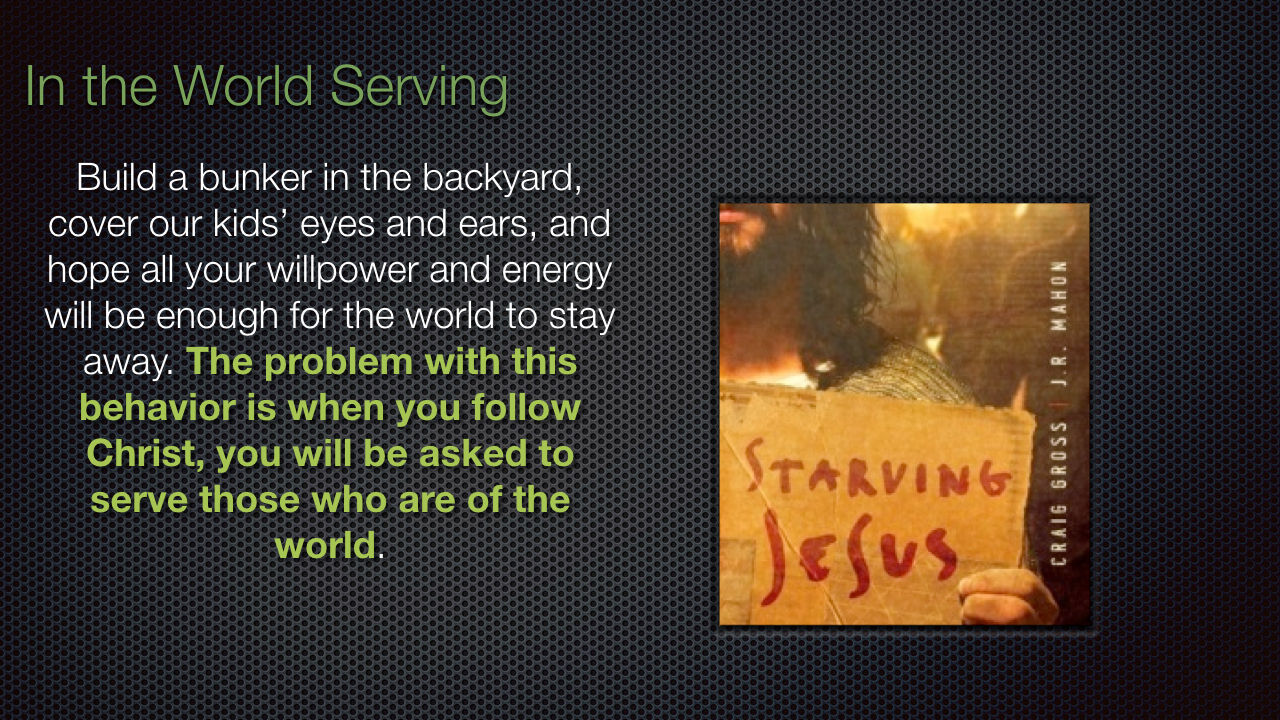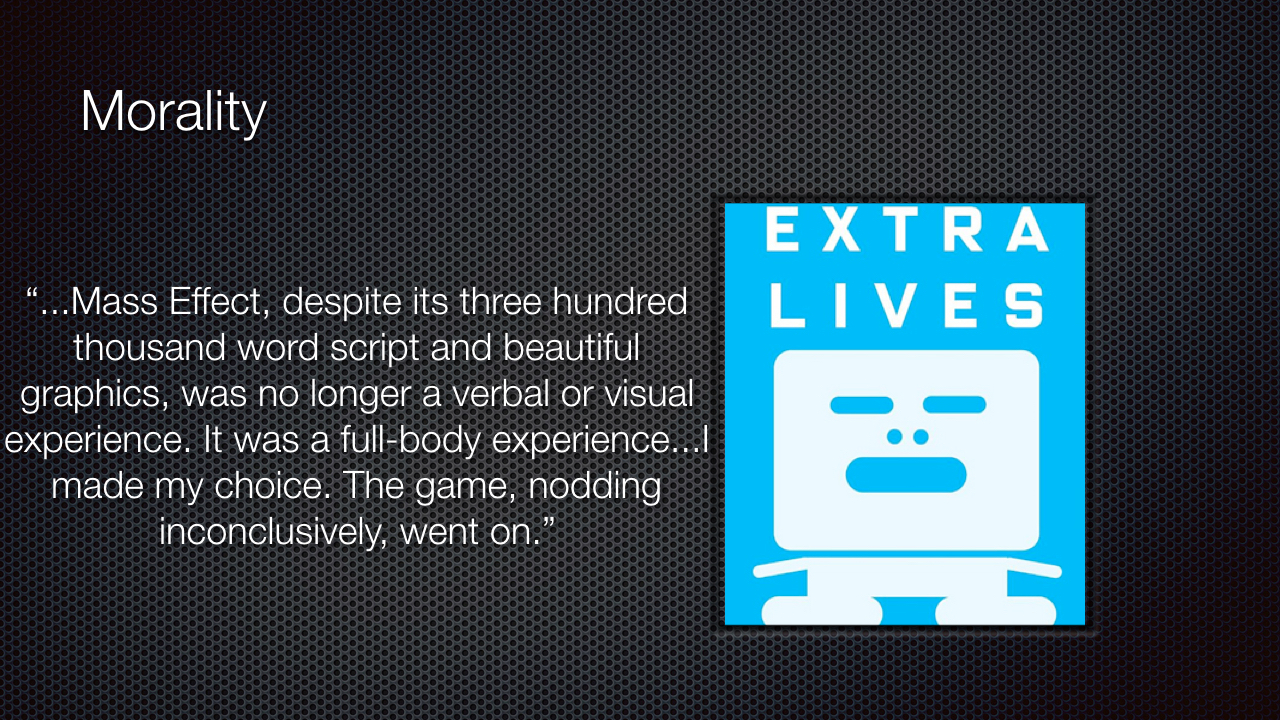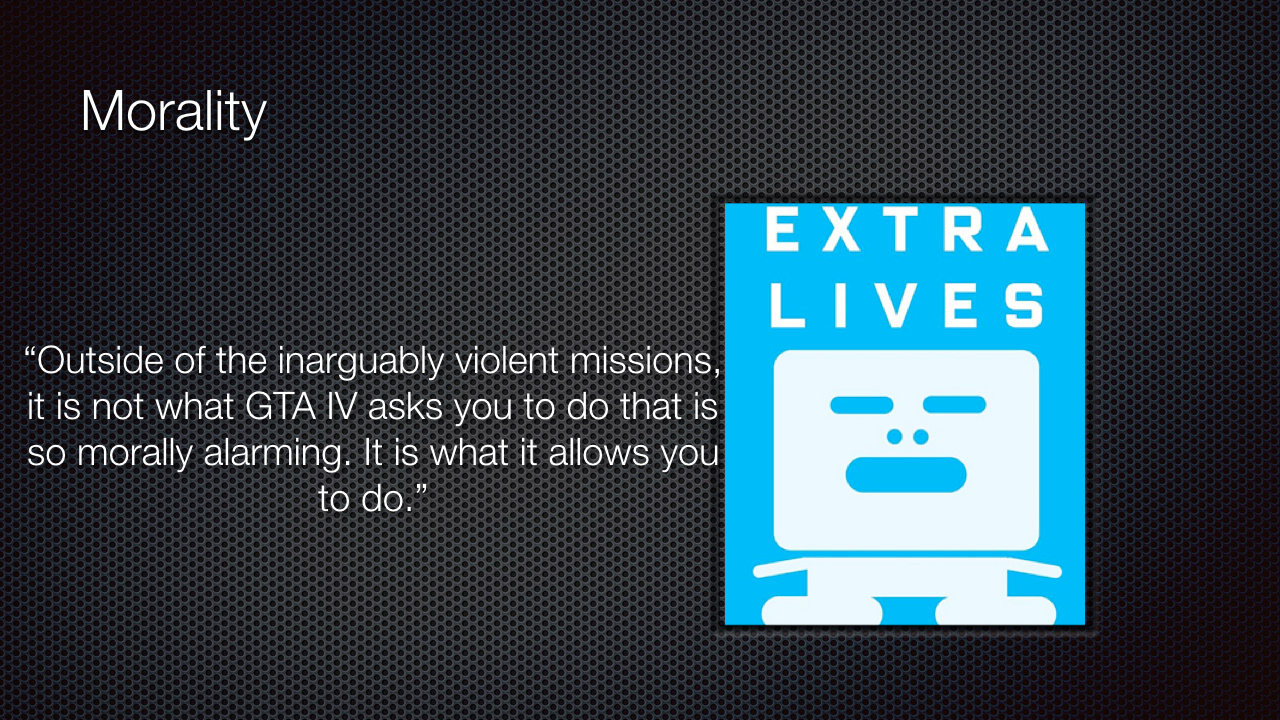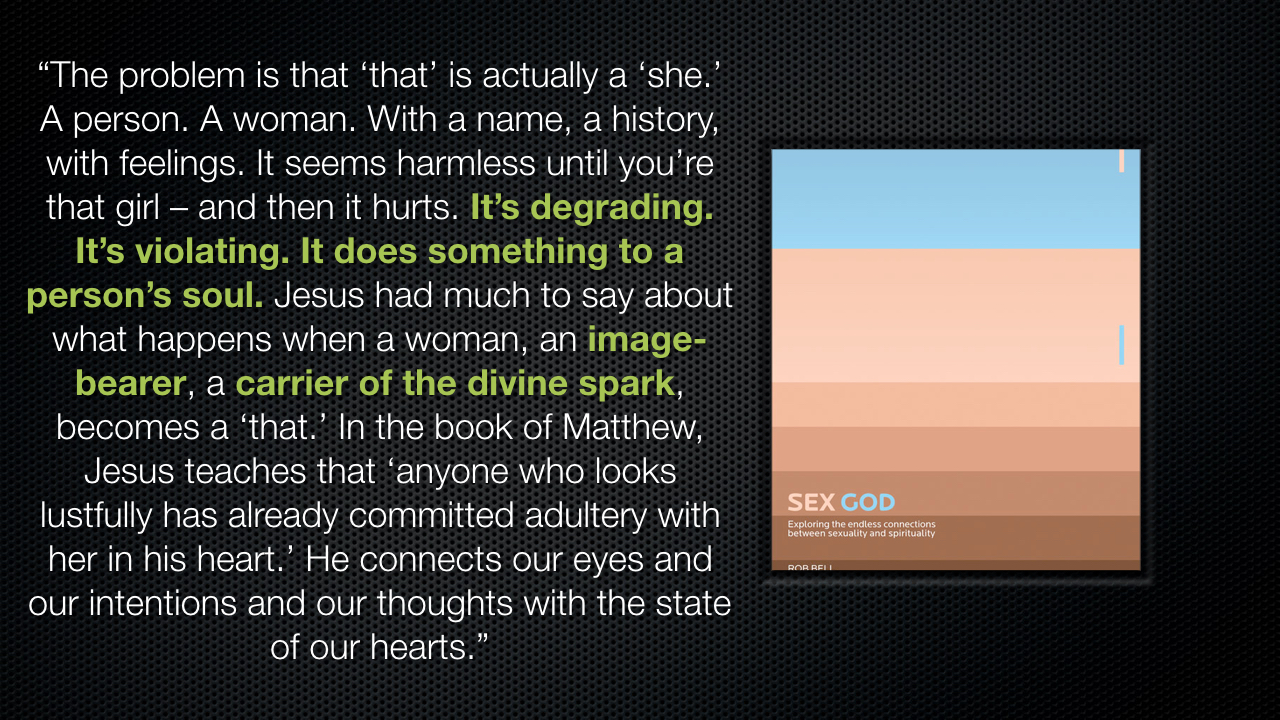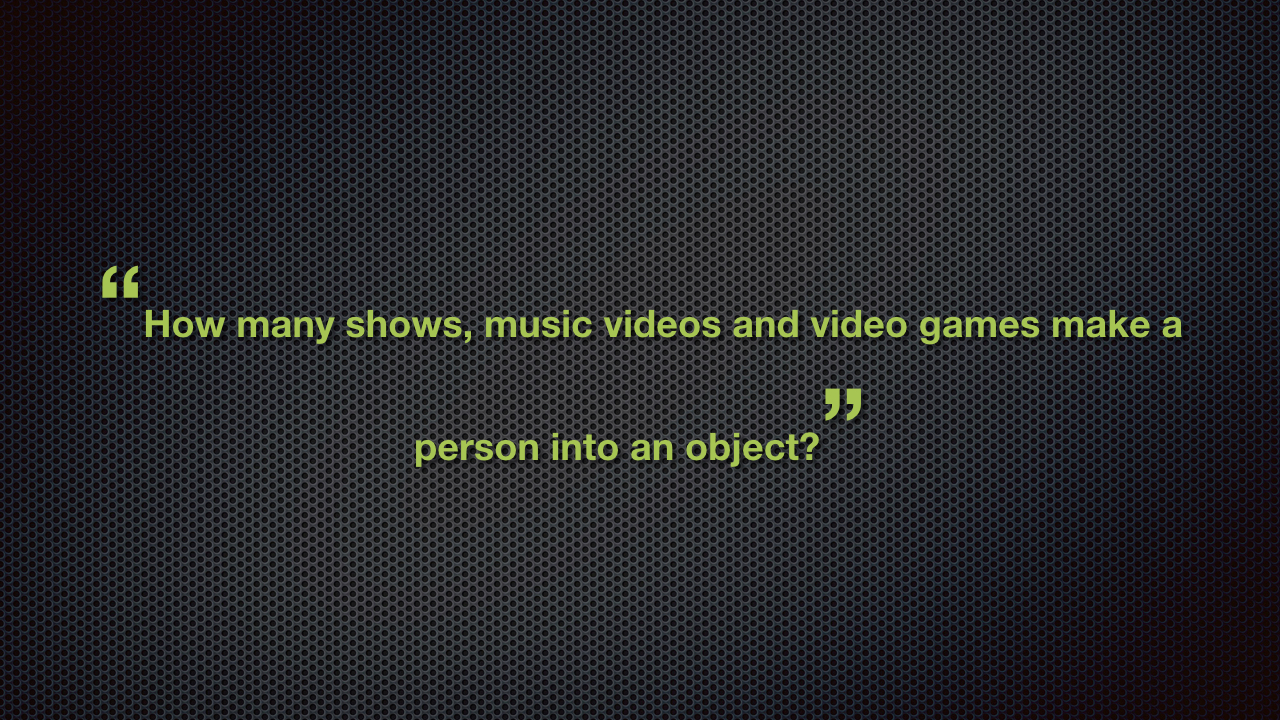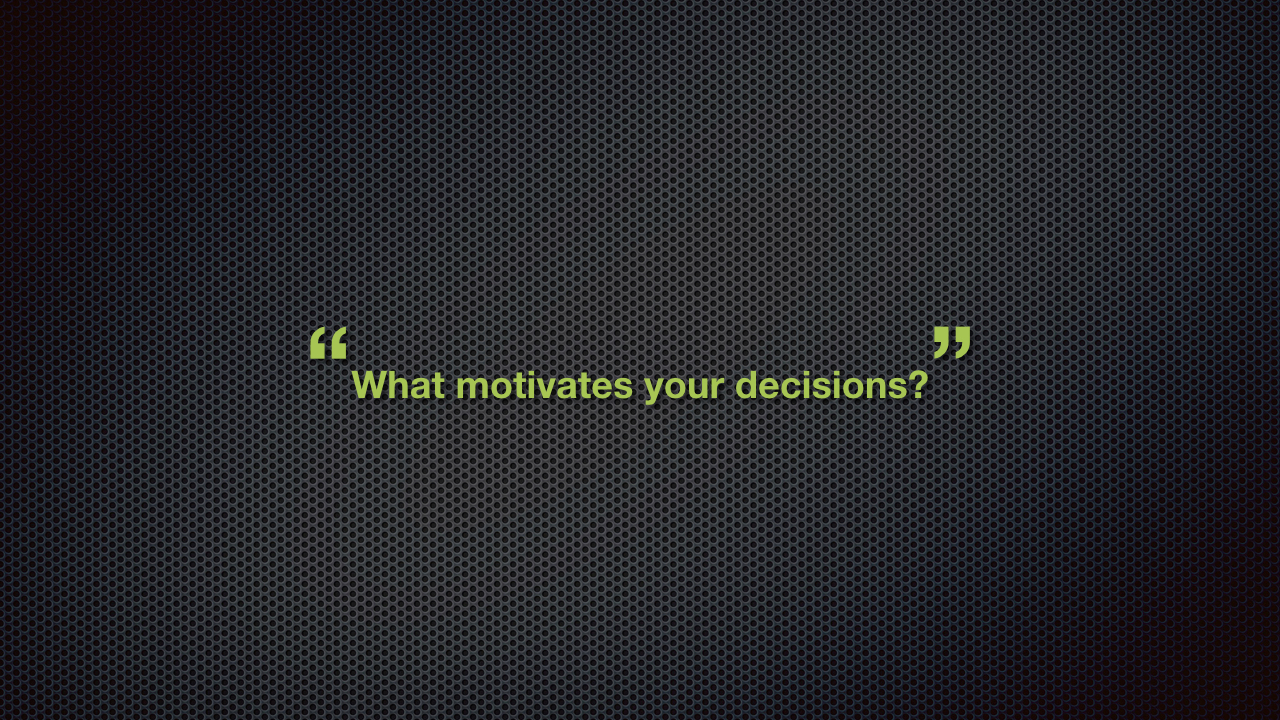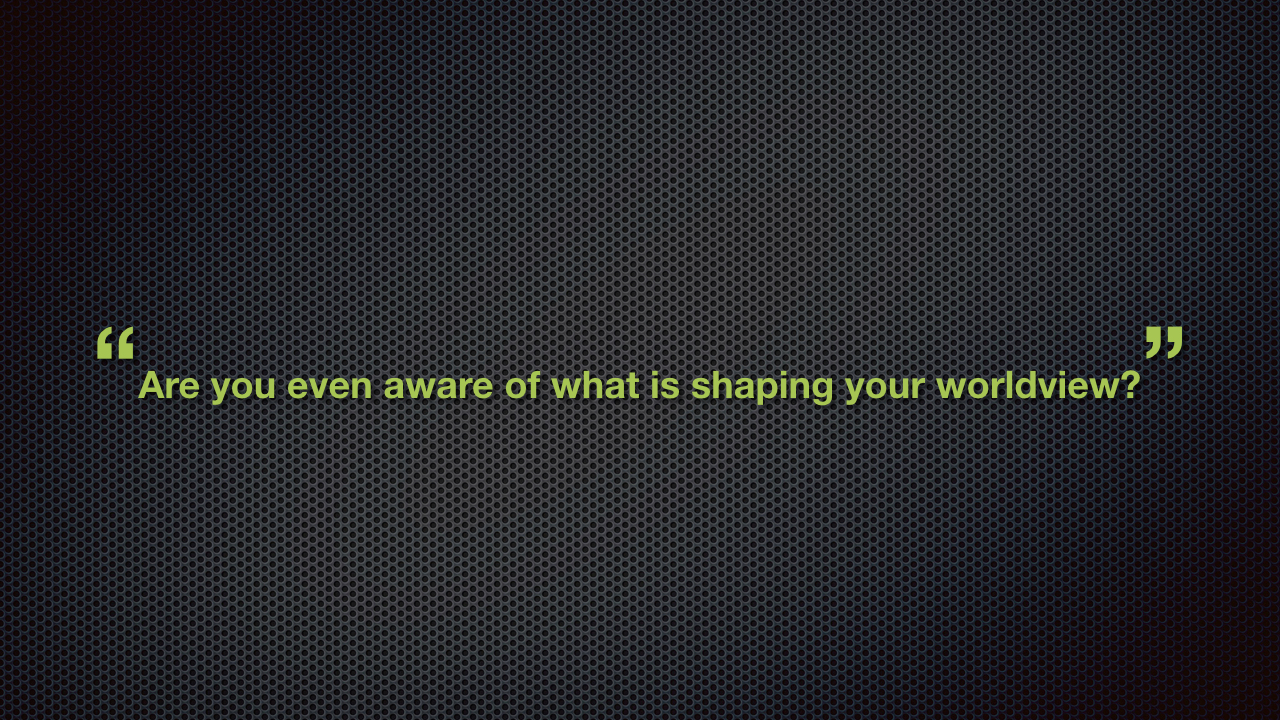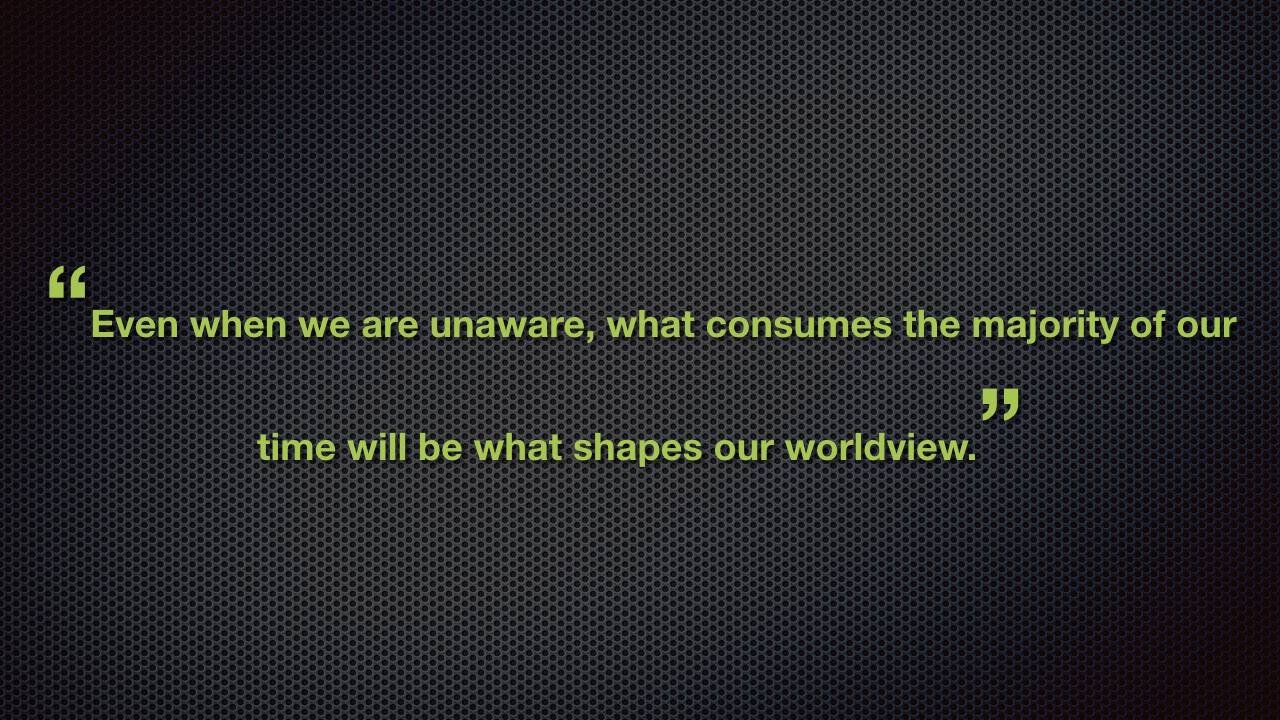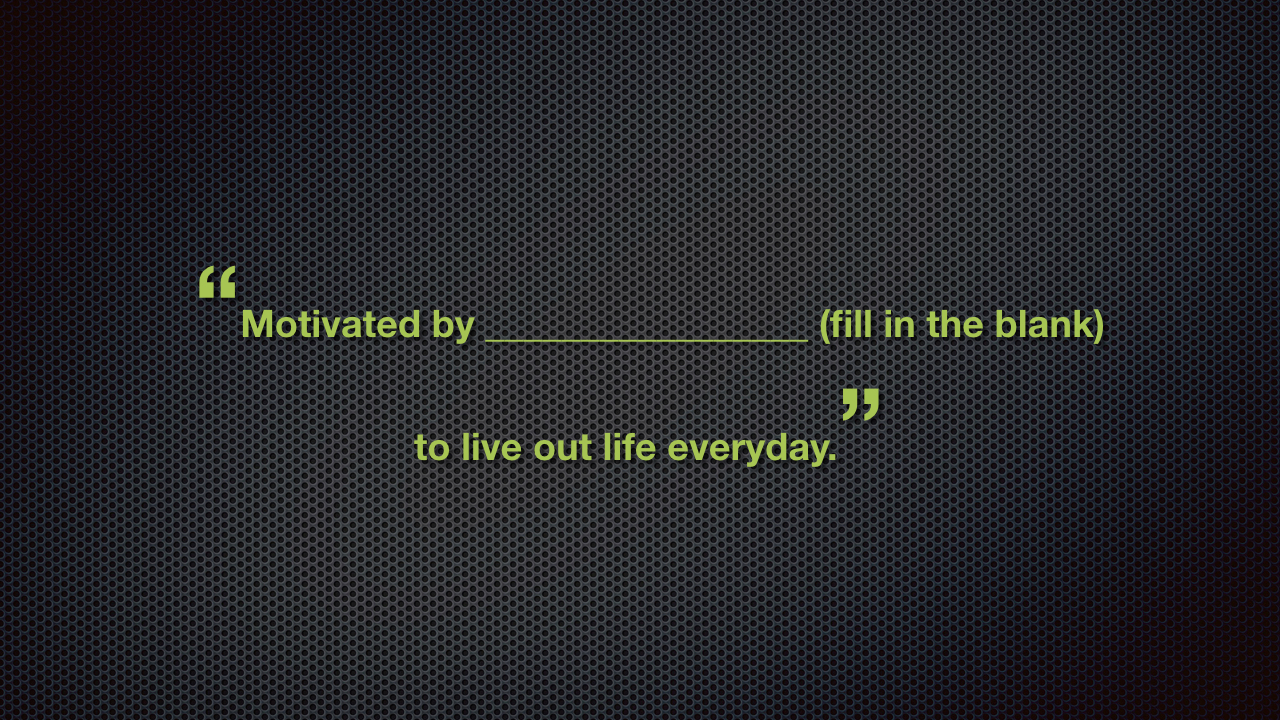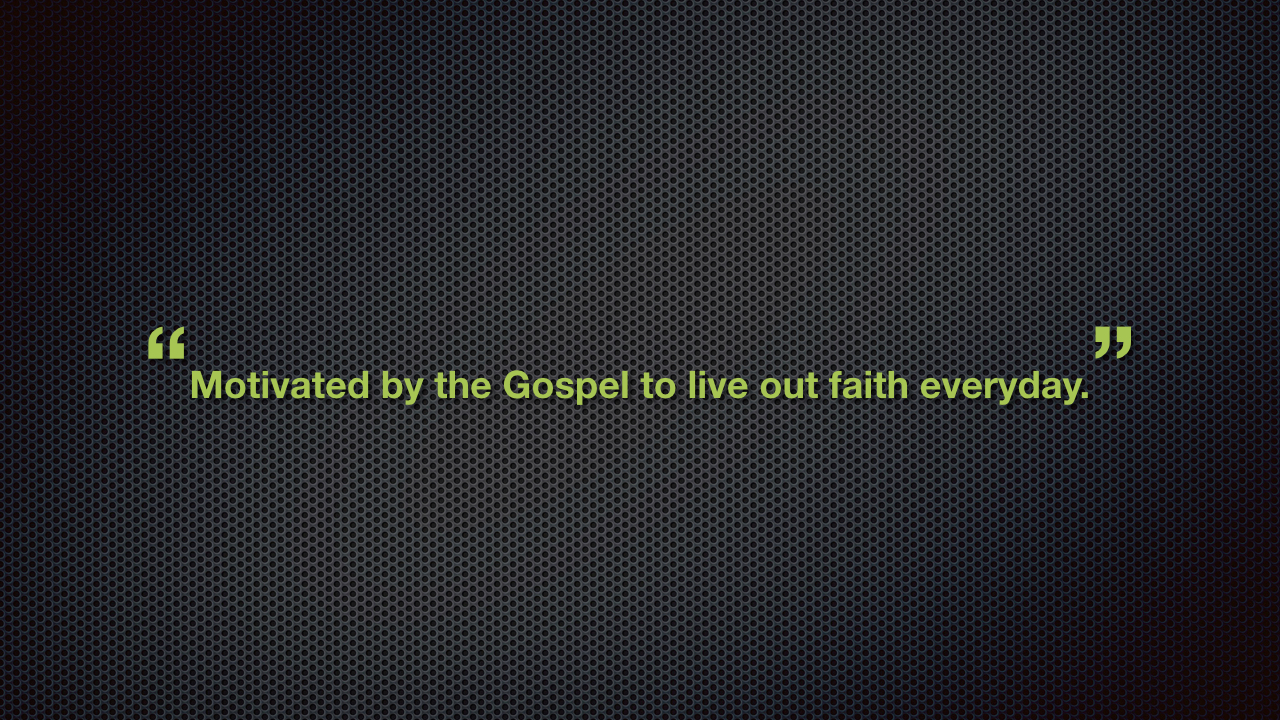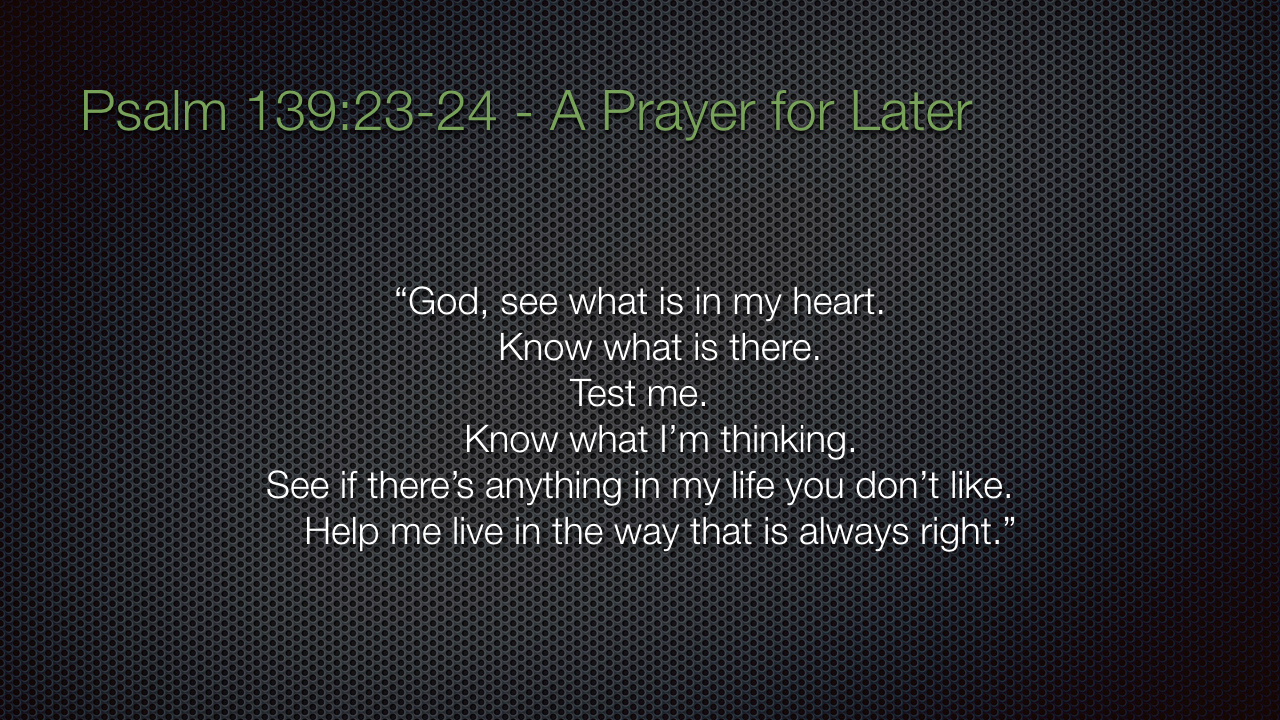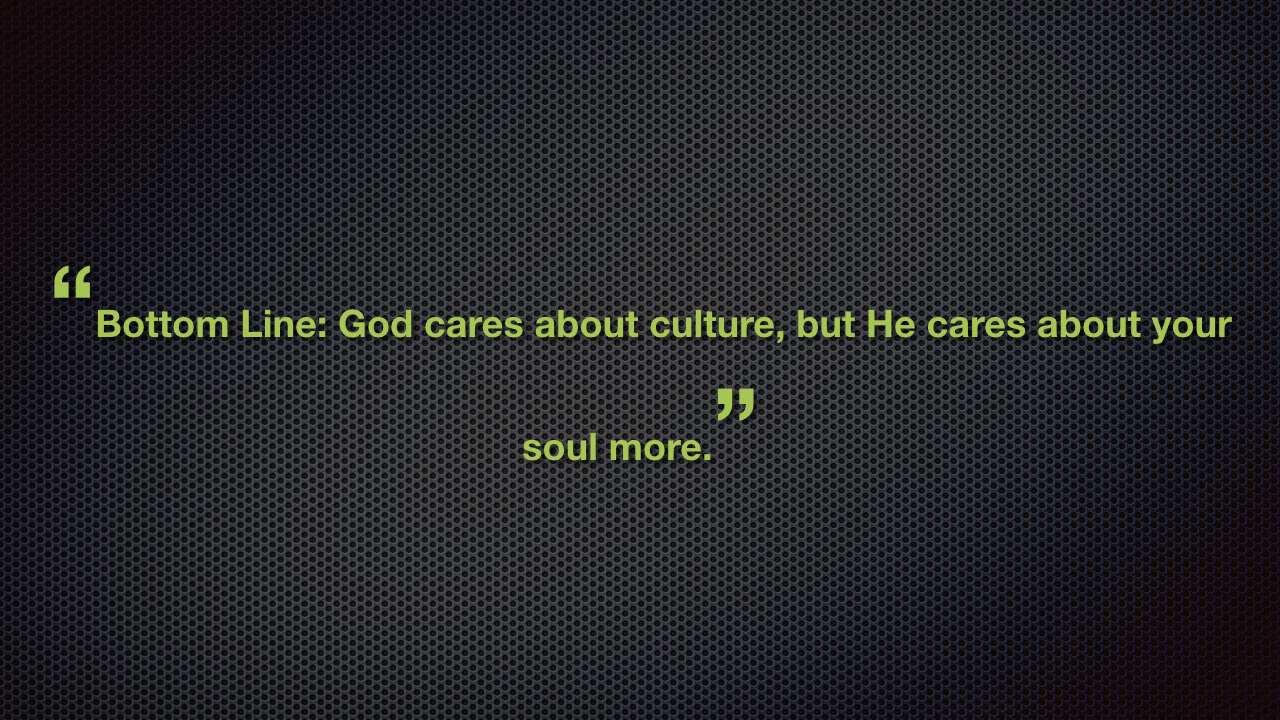Recently, I led a couple talks for youth and parents about holding fast to one’s faith while being surrounded by pop culture influences. Both talks were great opportunities to have open discussions about what the world expects versus what God expects of us. One thing that was shared with the parents was some food for thought – if we have biblical values, we will have biblical actions, which will help us differentiate biblical and world views.
- Values
- Actions
- Worldview
The only way we can have these values, actions and this worldview is if we know the source - the Bible. If we address pop culture with this game plan, it helps us understand that our God is a God of right now. Most teens are trying to figure out how to live within their peer circles and still keep their faith. There is an urgency in their “need to know” as their world changes faster than ever before.
The core values given to us is in Galatians 5:22-25.
- Love
- Joy
- Peace
- Patience
- Kindness
- Goodness
- Faithfulness
- Gentleness
- Self-control
When we can look at our lives and the media that we consume and participate in, we should be able to say that these values are present. When these values start to become blurred or not present is when we, as parents and leaders, need to step in and ask some steadying questions to anchor our youth back to their faith. For instance, inquire what is causing them to not live by the values that shape who we are as followers of Christ.
Christ and many of His followers warn us to not be deceived by this world, or teachings that come from it. Their are also strict warnings not to deceive others (Colossians 2:8). Christ calls us to know the truth and teach it in love (Ephesians 4:14-16). I don't think we do a good job of this “teaching in love” as Christians. Many times, we feel that strong opinions and a firm comment of “Don't watch this,” or “Don't do that,” is the answer, but these responses tend to drive teens to explore and rebel deeper and harder than before. (I can personally say that I have been there and done that.) Conversations are key between parents and teens when it comes to pop culture. Explore with your kids what they are watching. Read the lyrics together as a family and ask yourselves what are the values on display, and do they align with the biblical values as a family and as individuals?
One way to look at the influence of culture is to read through 1 John as a family. Take time to notice the progression of walking out of the darkness and into the light. As a parent, the best thing you can do is be engaged with your kids regarding their choice in music, what is on TV and what movies are out, and know what sites and apps your kids use most. Try websites like Common Sense Media to get reviews on all things pop culture. For songs, simply Google the lyrics and have a read (because it’s hard catch the lyrics while listening to the song on the radio and trying to drive the kids to hockey practice). If you want a good book on this subject you can pick up Brett Ullman's book media.faith.cultre: Parents 101 here.
The best advice is not to disengage and strike your kids down with a “no,” but to engage deeply with your kids to show them that you are interested in what interests them. Then, if you need to lay down the ground rules and say no, they’ll respect the fact that you took the time to look into it in the first place. The pop culture talk is a tricky one to navigate because, for every family, it is slightly different, but having a conversion and being informed is the foundation for every kind of talk.

